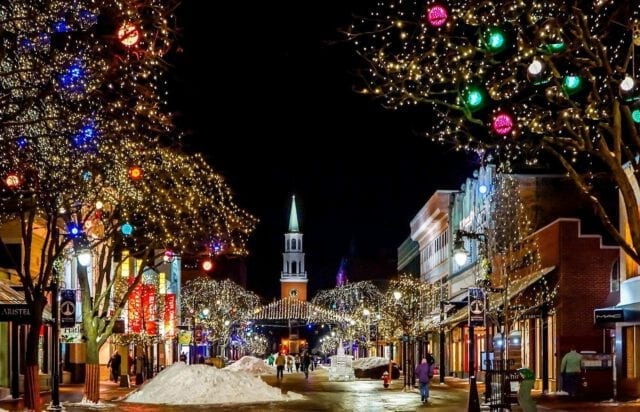Christmas, and especially Christmas Eve, is a time that we celebrate in a very special way. We attach great importance to the symbolism related to Christmas Eve. So let's check what commonly known Christmas Eve traditions we have.
According to Polish tradition, the dishes served on the table on Christmas Eve should be meatless and, importantly, prepared without the use of animal fats. Christmas Eve is a custom rather followed, but in many Christian denominations it is not a command. A good example is the traditional dishes served on that day in Norway.
Nurturing traditional customs and festive rituals is related to knowledge passed down from generation to generation.
The folk or pre-Christian lineage of many customs causes a mixture of religious symbols and pagan superstitions. Therefore, both of them give this holiday a special color. Awareness of this dual origin of the symbols of Christmas customs allows us to better understand their meaning.
Here are the symbols and Christmas customs:
Hay under the tablecloth - comes from pagan times and is related to the former agrarian cult. Tradition requires hay to be placed under the tablecloth. This symbolizes the birth of Jesus in poverty.
 First star - This is a symbolic reference to the Star of Bethlehem, which signifies the birth of Jesus. The Magi saw the star on the eastern side of the sky. The first star is a sign that the Christmas Eve supper can begin.
First star - This is a symbolic reference to the Star of Bethlehem, which signifies the birth of Jesus. The Magi saw the star on the eastern side of the sky. The first star is a sign that the Christmas Eve supper can begin.
Prayer together - Christmas Eve dinner begins with prayer and reading a fragment of the Gospel according to St. Matthew or Luke regarding the birth of Jesus.
 Wafer - breaking the wafer with all the participants of the supper is the most important point. This gesture brings people closer, symbolizes strong family ties and the willingness to share the fruits of your work with your loved ones. In the past, in the case of a bar, the wafer was shared with bread.
Wafer - breaking the wafer with all the participants of the supper is the most important point. This gesture brings people closer, symbolizes strong family ties and the willingness to share the fruits of your work with your loved ones. In the past, in the case of a bar, the wafer was shared with bread.
Christmas traditions and symbols
Additional cover - on the Christmas Eve table an additional place is placed for the unannounced guest. It is also an expression of remembrance of our relatives who are absent, e.g. they could not reach the supper or those who died.
Christmas candle - it's a custom from the Netherlands. On Christmas Eve, a burning candle was placed in front of the entrance to the house. This light is a symbol of an invitation to the family of Mary and Joseph.
 Christmas nativity scene - the custom of setting a Christmas scene from figurines, or at least the nursery itself with hay and a figurine symbolizing baby Jesus lying in it. This tradition dates back to the XNUMXth century.
Christmas nativity scene - the custom of setting a Christmas scene from figurines, or at least the nursery itself with hay and a figurine symbolizing baby Jesus lying in it. This tradition dates back to the XNUMXth century.
Christmas dishes - it all depends on the region and family traditions. Customarily, however, the table should contain all the products of the earth, that is, something from the orchard, from the water, from the field and from the forest. You have to remember that there should be twelve dishes. Trying each dish is to ensure good luck for the whole coming year.
 Christmas tree- appeared as a Christmas tree in the XNUMXth centurybut has probably already appeared as the Paradise "tree of the knowledge of good and evil" in the mysteries of Adam and Eve. On Christmas Eve, we find gifts brought, depending on the region, by an Angel, Child, Christmas, Santa Claus or Santa.
Christmas tree- appeared as a Christmas tree in the XNUMXth centurybut has probably already appeared as the Paradise "tree of the knowledge of good and evil" in the mysteries of Adam and Eve. On Christmas Eve, we find gifts brought, depending on the region, by an Angel, Child, Christmas, Santa Claus or Santa.
Carol singing together- Singing in which all supper participants are involved. The ancient Slavs also used this name to refer to the Mating Festival. Carolling was also called the ritual of celebrating houses by groups of disguised people who sang and brought good wishes.
Dishes on the Christmas table.
According to tradition, there should be twelve of them. Here is the list:
-RED SPARKLING WITH DEALS (in some regions, instead of borscht, we can eat: white sour soup, fruit soup or fish soup)
-MUSHROOM SOUP
-KARP (fried or jelly)
-FISH AFTER GREEK
- HERRING (e.g. in oil, vinegar, cream and herring under the quilt.)
-CABBAGE WITH PEAS
-CABBAGE WITH MUSHROOMS
- Dumplings with cabbage and mushrooms
-PATTIES WITH MUSHROOMS
-Punk dumplings or poppies
-KUTIA (usually made of crushed wheat, poppy seeds, malt, honey, dried fruits: various nuts, raisins and other additives)
-DRIED FRUIT COMPOTE
-KLEBIAK is a large, baked dumpling in the shape of a wide, flattened cylinder made of yeast or semi-shortbread dough, stuffed with meat, fish or vegetable stuffing.
-POPPY SEED CAKE
-GINGERBREAD
-BREAD
-SALAD (Christmas Eve salads, with tuna, bean, potato, herring with beetroot and many others).



